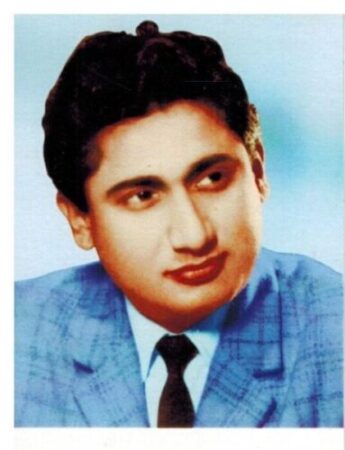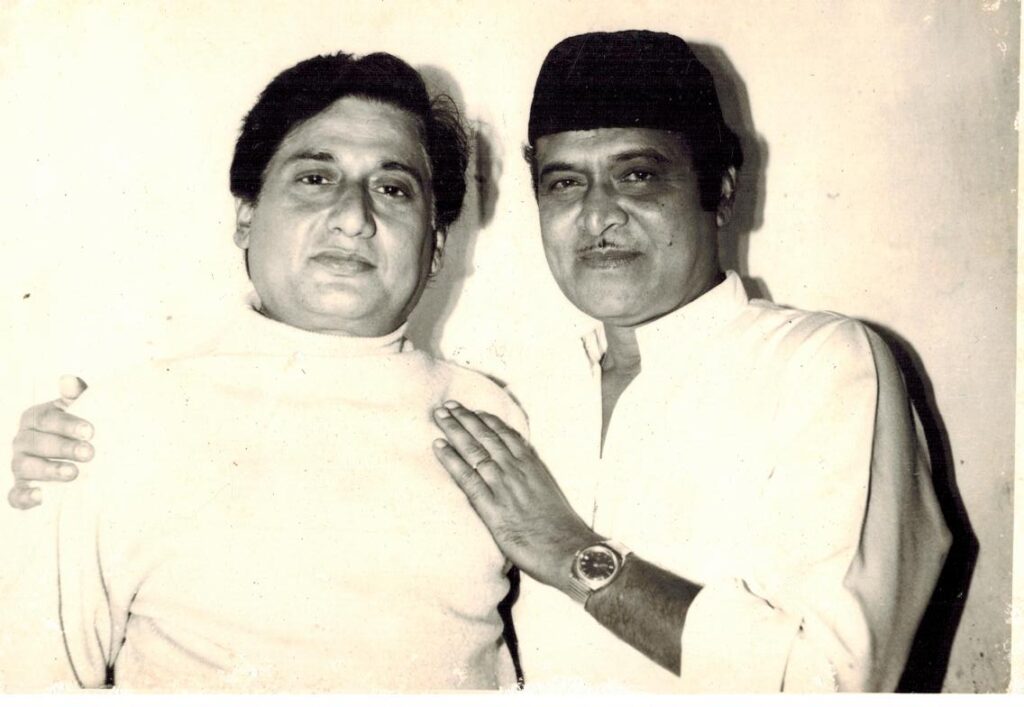
The musical genius of Jyotish Bhattacharjee : a journey unplugged
Jyotish Bhattacharjee, an iconic face of Assamese modern music, is arguably one of the finest melodious singers of the romantic era. Born on 13th September 1937, in the cultural capital of Dibrugarh, Assam, his initiation to music started in the lap of his mother Kamakhya Devi, who would hum melodious serenades to him. Young Jyotish testified his musical embodiment at the tender age of five when he created an ektara of his own and presented a bhatiyali rendition to his musically inclined father, Gunesh Chandra Bhattacharjee. As summers crossed by, his yen for music flowered and his genius chiselled in quest of Naad Brahma under the able tutelages of Guru Rameshwar Das and Gopal Chandra Banerjee – both disciples of Senia Beenkar Gharana. He strongly believed music is nature and nature is God and without music, life would be a mistake; hence he would enrol himself on nature’s school of music on the bank of river Brahmaputra and riyaaz for hours before and after his school.

In 1953, he completed high school and the following year he received the coveted invite to perform at All India Radio, Guwahati (1954); his maiden song “Mur Kobitai Kapani Tule Kar Kanthar Xure” became an instant hit and ushered him the recognition of a gifted singer. In 1957, he led the cultural troupe of his college D.H.S.K College for the Inter-Varsity Youth Festival held at Delhi and bagged first prizes in several genres of vocal music; his velvety rendition left many spells bound which included likes of Mahinder Kapoor and santoorist Shiv Kumar Sharma. The decade that followed saw his songs being recorded by His Master Voice (HMV) and hitting the popularity charts – songs like “Champawati Tomar Ghatot”, “Kone Aji Polash Phulale”, “Kinu Koy Duti Mughdha Noyone”, “Kheyali Mor Monor Akash” Barsha Xikta Aie Basundhara”, “Namti Tumar Surujmukhi”, became household croonings. In 1970, he joined All India Radio Dibrugarh and in the next 20 years of service life, he composed and sang some of the finest, romantic songs of Assamese modern music while heralding a new era of neo-pastoral renditions–like “Moi Eti Dinar Jonaki”, “Namdilu Xiharan”, “Moi Janu Tumi”, “Nila Nilimat Arati”, “Sagarar Dorei”, “Hey Akash”, “Eitiya Bahu Nisha”, “Moi Saratar Batori Anisu”, “Mosi Diya Jodi”, “Juwar Porot” and many others. In total, he is credited with singing more than 150 melodious songs. In Oct 2012,in a program hosted by a private TV channel DY365, his song “Moi Eti Dinar Jonaki” penned by Nava Kanta Baruah was voted as one of the 10 greatest Assamese modern songs of all time. During his professional affiliations with All India Radio Dibrugarh many musical features like “O Mor Apunar Desh”, “Ki Phule Phulala”, “Bhakatir Suriya Maat” also won Akashvani Annual Awards.
Gifted with a golden voice, this Renaissance musician created a distinct romantic genre of Assamese modern music – with his rasik gayakistyle. His focus on the chromatic shrutis and raagmala progression formed the cornerstone of his mellifluous consonance – especially Ragas like Hambir, Kedar, Yaman, Kalyan , Jaya Jayanti always had firm moorings in his musical compositions. Yet he stayed inspired by the songs of Nat King Cole to Mehdi Hassan, Salamat Ali Khan to Jim Reeves, Chaiti to Rock-n-Roll-thereby instilling a unique contour to his musical resonance. Dr Bhupen Hazarika christened him as the ‘Talat Mahmood of Assam’ and when the later visited Dibrugarh in the late 60’s he was so impressed that he called him his brother “Junior Talat”. Musicologist Tafazzul Ali with whom he embarked upon a journey of learning and musical collaboration for several decades entitled him as the “uncrowned emperor of contemporary music”.
A humanist by soul and perfectionist by nature -Jyotish Bhattacharjee: the man and his music are divinity personified. On 23rd September 1991, this musical genius mounted up the hills of heaven and crossed over in silence; and long afterwards when he is no more his music is heard over and over again.